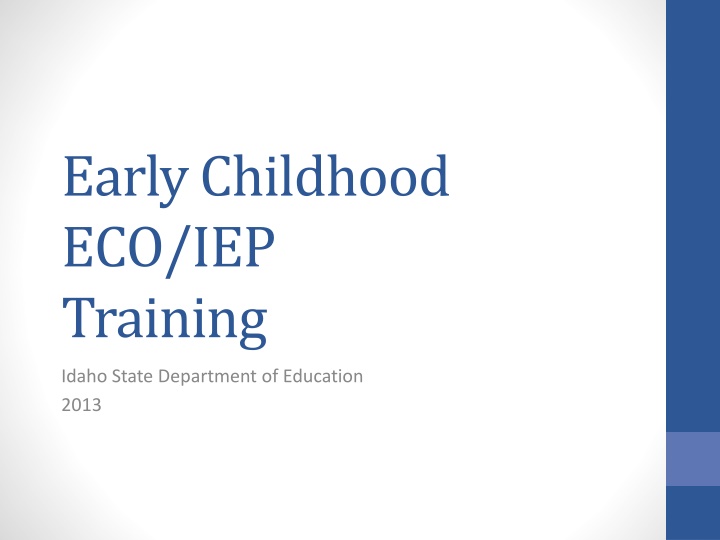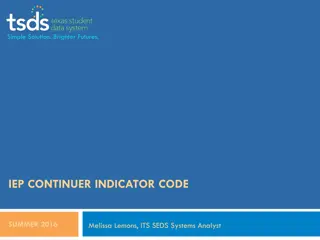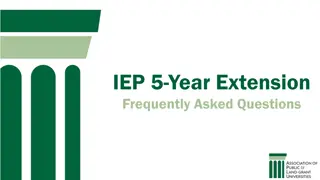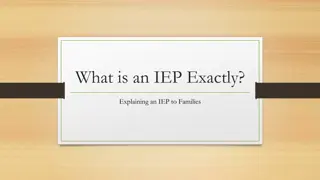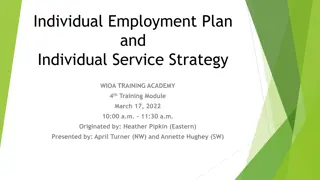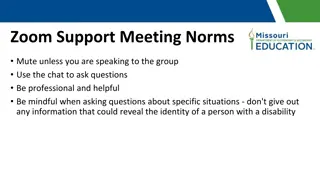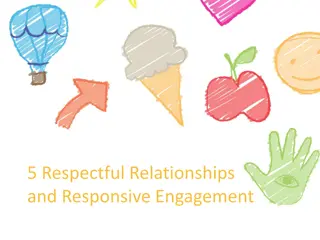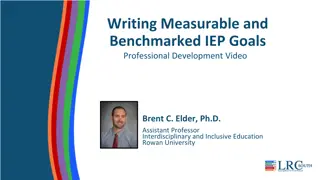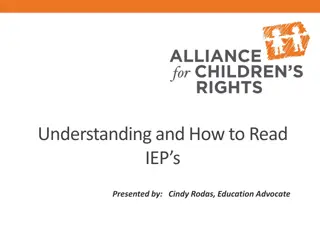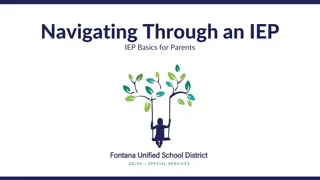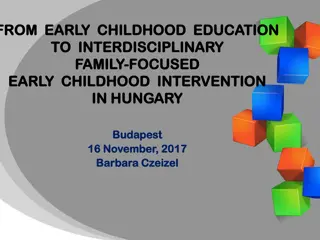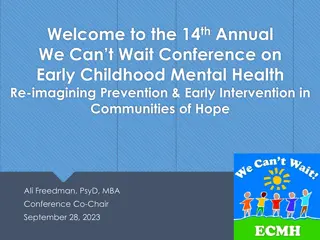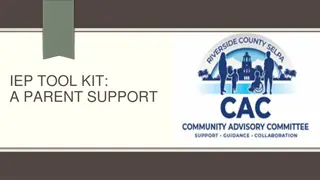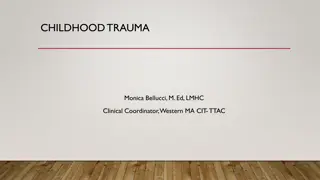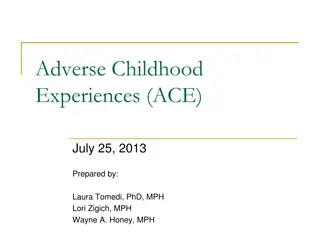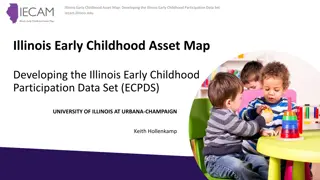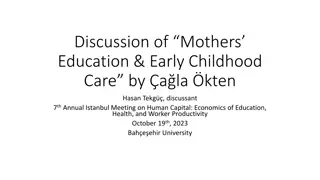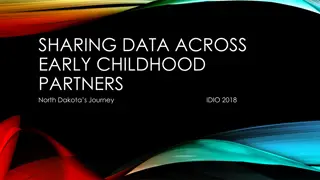Early Childhood IEP Training Workshop Agenda
This training workshop organized by the Idaho State Department of Education in 2013 focused on helping professionals in early childhood education identify and collect information needed to complete new Early Childhood IEP practices. The agenda included sessions on screening materials, transition strategies, professional assessments, and developing Individualized Education Programs (IEPs) for children. Participants learned to utilize various sources of evidence and resources to enhance the outcomes for individual children. The workshop emphasized the importance of focusing on priority strengths and needs while documenting children's skills and behaviors objectively.
Download Presentation

Please find below an Image/Link to download the presentation.
The content on the website is provided AS IS for your information and personal use only. It may not be sold, licensed, or shared on other websites without obtaining consent from the author.If you encounter any issues during the download, it is possible that the publisher has removed the file from their server.
You are allowed to download the files provided on this website for personal or commercial use, subject to the condition that they are used lawfully. All files are the property of their respective owners.
The content on the website is provided AS IS for your information and personal use only. It may not be sold, licensed, or shared on other websites without obtaining consent from the author.
E N D
Presentation Transcript
Early Childhood ECO/IEP Training Idaho State Department of Education 2013
Agenda 8:30 - 9:00 a.m. Introductions, Agenda, Review of the Day, Questions 9:00 - 10:00 a.m. I DO Screening Material/Transition Material Parent Material Observation Material Professional Assessments/Arena or Team Assessment Anchor Assessment Eligibility Report Early Childhood IEP 3 Outcome Areas: PLOPs and Annual Goals 10:00 10:15 a.m. Break 10:15 Noon We DO Packet with Student Information Blank Early Childhood Form Noon 1:30 p.m. Lunch 1:30 4:00 p.m. You Do Packet with Student Information Blank Early Childhood Form 4:00 4:30 p.m. Report out
Objectives Identify information needed to complete the New Early Childhood IEP Practice
Collecting and Summarizing Evidence Utilize all sources of current evidence (observation, interview, formal and informal assessments) and across time (pre-referral, transition, screening, evaluation). Identify meaningful and useful behaviors and skills that show how child functions related to the outcome. Focus on priority strengths and needs/concerns related to each outcome for the individual child.
Collecting and Summarizing Evidence Refer to resource documents for: Child development Content covered in each outcome. Keep a focus on what most children do with regard to the specific outcome. Focus on concrete, discrete, and objective descriptions of the skill or behavior. Avoid statements that are subjective, non- skill specific and vague ( loves , enjoys , good language skills , appears to ).
Collecting and Summarizing Evidence Consider level of consistency and independence with which child demonstrates all elements of skill. Words like usually and sometimes infer child does not use skill across all settings and situation or skill is not fully mastered. Remember, identify priority functional skills enable involvement and progress in general education
I DO -Example Identify what to collect Pre-referral and/or Screening information Infant Toddler Program assessments, case notes, etc. Parent Interview/Questionnaires Teacher Observation and student information Anchor Assessment Eligibility Assessments/Report
Pre-referral information from the Infant Toddler Program
Teacher Observational/Student Information
Anchor Assessment Teaching Strategies Gold Red Green Pre-K 3 Yellow 2-3 years of age Blue Pre-K 4 Birth to 1 yeas of age Orange 1-2 yeas of age Purple - Kindergarten
Parent and Teacher Responses Teacher Response IF Parent Response AA
Teaching Strategies Summary from Teacher and Parent
Data Summary Additional Data was reported
